Green Serviceware 201
There are a lot of great choices for green serviceware products
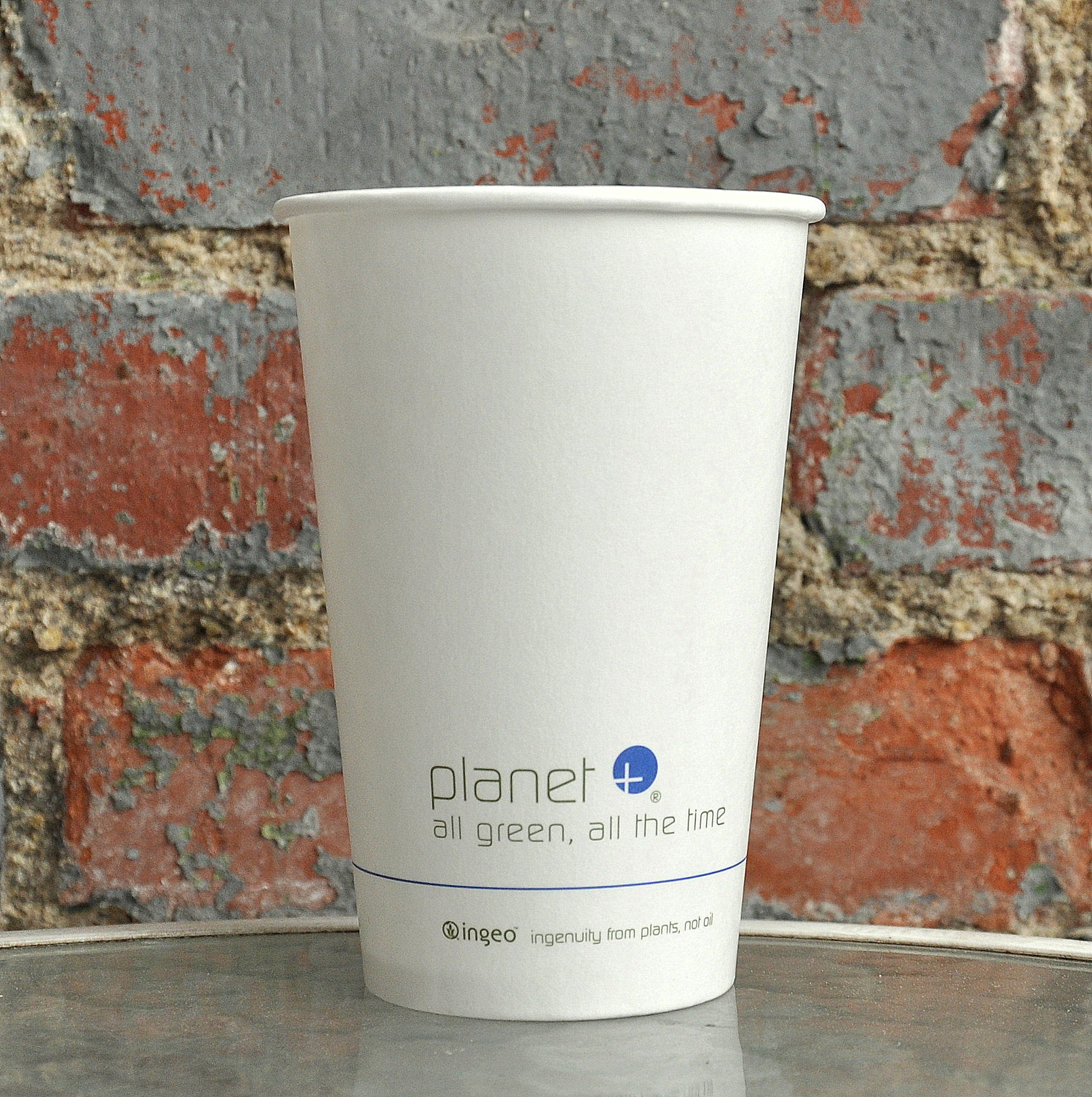 All cups are not created equal: some paper cups are more planet-friendly than others. The best green paper products are made from wood pulp that comes from responsible-managed forests certified by the Forestry Stewardship Council (FSC). It's also important to know that most cups and containers made for hot food have a petroleum lining so they don't leak. But, unfortunately, that means they aren't fully compostable (and they might be leaching toxins into your food). Planet-friendly paper cups and containers use a plant-based lining (such as Ingeo), which also ensures they completely biodegrade. All cups are not created equal: some paper cups are more planet-friendly than others. The best green paper products are made from wood pulp that comes from responsible-managed forests certified by the Forestry Stewardship Council (FSC). It's also important to know that most cups and containers made for hot food have a petroleum lining so they don't leak. But, unfortunately, that means they aren't fully compostable (and they might be leaching toxins into your food). Planet-friendly paper cups and containers use a plant-based lining (such as Ingeo), which also ensures they completely biodegrade.
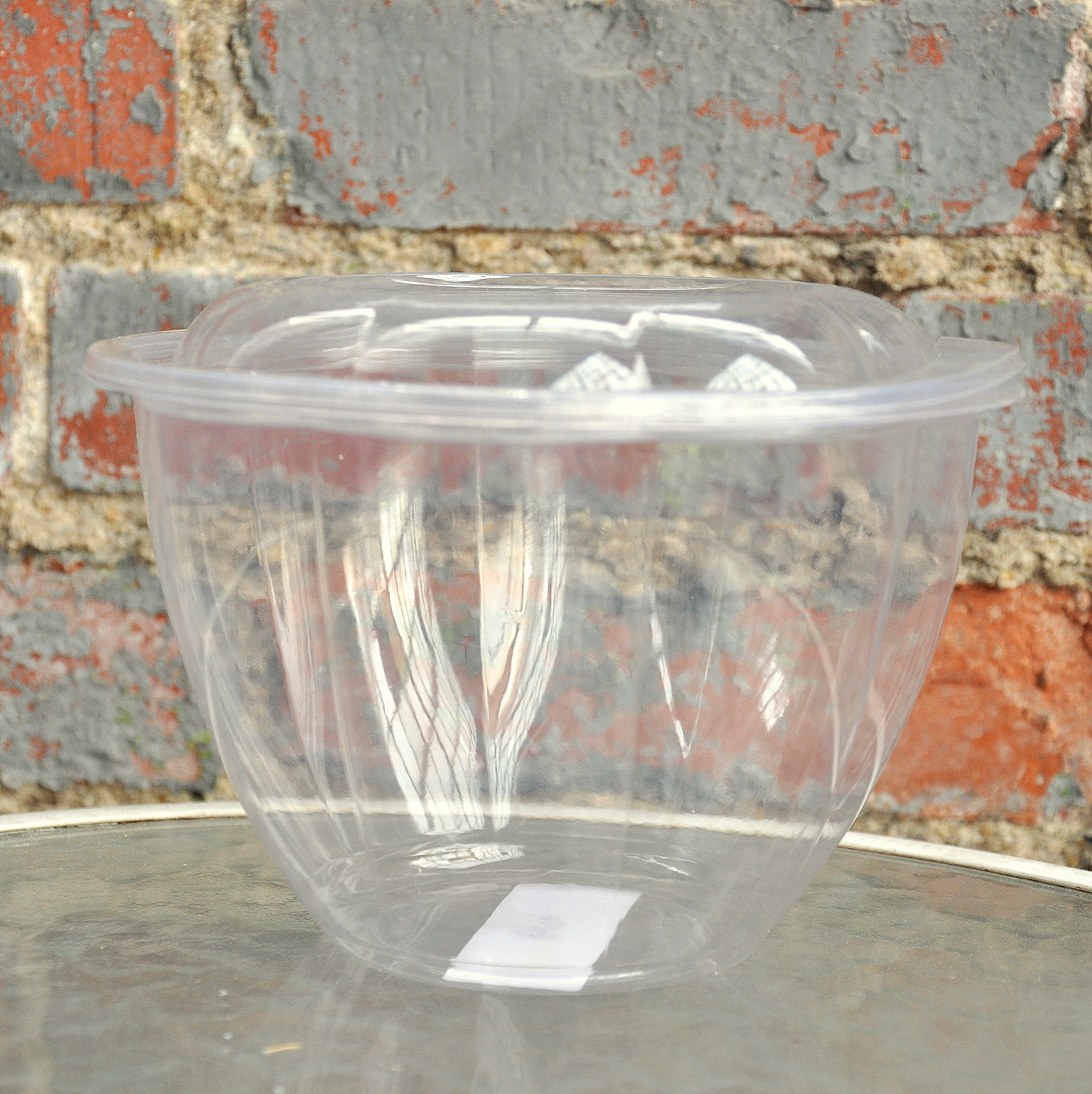 PLA is like plastic, but so much better for the planet (and people!). Traditional plastics and styrofoam are made from petroleum. Polylactic Acid (PLA) products have the look and feel of plastic, but they are made from renewable resources (think corn, soybeans and other plants), not oil. Perfect for cold food and drinks, PLA saves resources without compromising the quality that consumers expect. PLA products are compostable in commercial composting facilities, but unfortunately not in your home composter. PLA is like plastic, but so much better for the planet (and people!). Traditional plastics and styrofoam are made from petroleum. Polylactic Acid (PLA) products have the look and feel of plastic, but they are made from renewable resources (think corn, soybeans and other plants), not oil. Perfect for cold food and drinks, PLA saves resources without compromising the quality that consumers expect. PLA products are compostable in commercial composting facilities, but unfortunately not in your home composter.
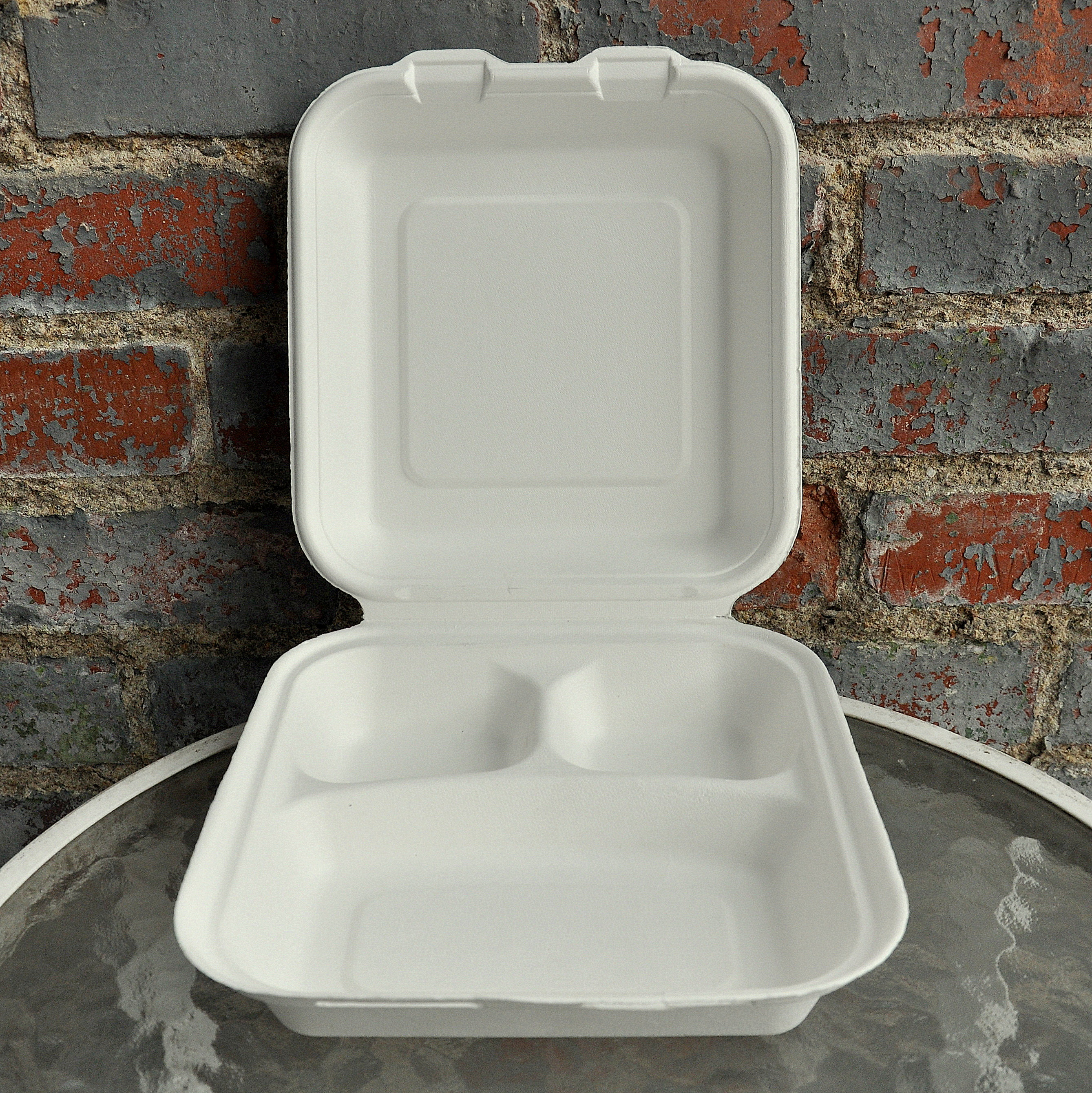 Bagasse is another very sturdy, planet-friendly and rapidly renewable material that offers a natural high-quality look and feel to a range of products - from plates and bowls to take out containers. Bagasse products are made from the reclaimed bio-waste of the sugarcane manufacturing process. It is a durable high-performer that is grease, cut and heat resistant and home compostable. Look for "BPI-certified," which indicates the gold standard. These products normally biodegrade withing 30 - 90 days (while plastic and styrofoam will never biodegrade). Bagasse is another very sturdy, planet-friendly and rapidly renewable material that offers a natural high-quality look and feel to a range of products - from plates and bowls to take out containers. Bagasse products are made from the reclaimed bio-waste of the sugarcane manufacturing process. It is a durable high-performer that is grease, cut and heat resistant and home compostable. Look for "BPI-certified," which indicates the gold standard. These products normally biodegrade withing 30 - 90 days (while plastic and styrofoam will never biodegrade).
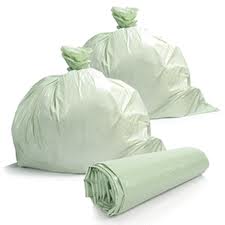 Until fully biodegradable liners become cost-effective and durable enough to handle the heavy loads generated in the food service industry, we think degradable trash can liners are the best choice available. How waste is handled is changing rapidly in the US, but for now landfills are a necessary part of modern life. Today most of our trash is buried and "entombed," and it's easy to forget about it. But what happens to the things we throw away today is likely to be important for future generations. Heavy-duty degradable plastic trash can liners are made with additives that make them break down into smaller components hundreds of years faster than conventional plastic trash can liners. Until fully biodegradable liners become cost-effective and durable enough to handle the heavy loads generated in the food service industry, we think degradable trash can liners are the best choice available. How waste is handled is changing rapidly in the US, but for now landfills are a necessary part of modern life. Today most of our trash is buried and "entombed," and it's easy to forget about it. But what happens to the things we throw away today is likely to be important for future generations. Heavy-duty degradable plastic trash can liners are made with additives that make them break down into smaller components hundreds of years faster than conventional plastic trash can liners.
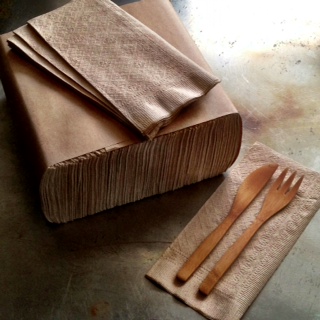 Unbleached paper is safer for people and the planet. To make paper, wood pulp is combined with water and pressed into sheets and dried; usually chlorine is then used to make it white. The chlorine bleaching process is extremely harmful to the environment and eventually people because it releases toxins into our water system (like dioxins, which are among the most toxic chemicals known). Bleaching paper is an unnecessary and merely aesthetic process. As more consumers learn about the environmental harms caused by bleached paper, the natural color of unbleached paper and tissue is quickly becoming the norm. Unbleached paper is safer for people and the planet. To make paper, wood pulp is combined with water and pressed into sheets and dried; usually chlorine is then used to make it white. The chlorine bleaching process is extremely harmful to the environment and eventually people because it releases toxins into our water system (like dioxins, which are among the most toxic chemicals known). Bleaching paper is an unnecessary and merely aesthetic process. As more consumers learn about the environmental harms caused by bleached paper, the natural color of unbleached paper and tissue is quickly becoming the norm.
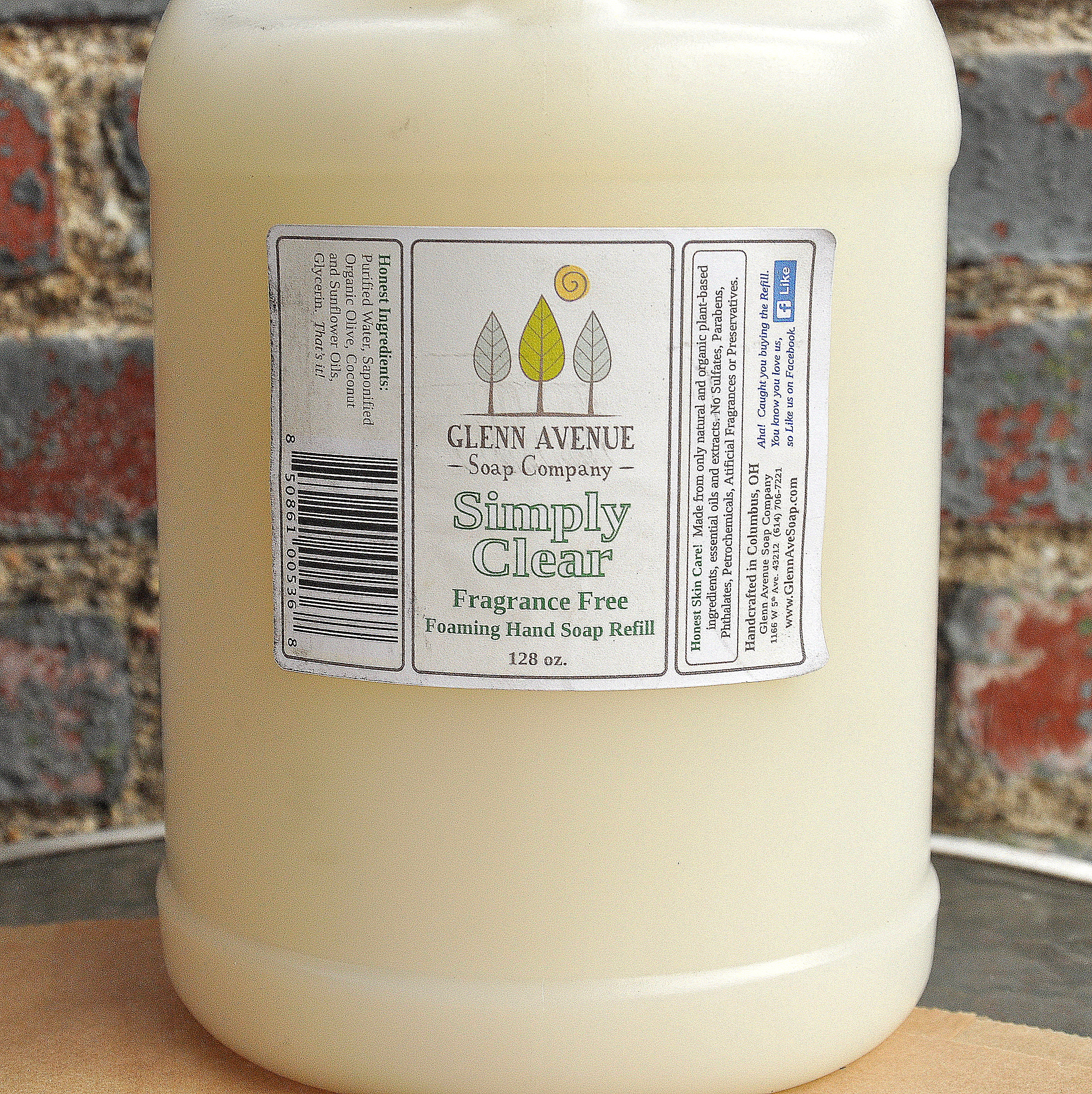 You can keep your workplace clean without toxic chemicals. Many toxic chemicals lurk in common cleaning products, contributing to indoor air pollution and are now linked to a wide range of serious health problems, such as asthma, headaches and much worse. The workplace environment is especially important, since people spend so much time there, yet have limited control over the products used to keep it clean. You can protect your employees and customers by switching to non-toxic cleaning solutions, from the handwashing soap in the restroom to the products you use to clean tables, floors and windows. Good news: non-toxic cleaning supplies work just as well and don't have to cost more. We'd be glad to review your cleaning needs and give you some suggestions! You can keep your workplace clean without toxic chemicals. Many toxic chemicals lurk in common cleaning products, contributing to indoor air pollution and are now linked to a wide range of serious health problems, such as asthma, headaches and much worse. The workplace environment is especially important, since people spend so much time there, yet have limited control over the products used to keep it clean. You can protect your employees and customers by switching to non-toxic cleaning solutions, from the handwashing soap in the restroom to the products you use to clean tables, floors and windows. Good news: non-toxic cleaning supplies work just as well and don't have to cost more. We'd be glad to review your cleaning needs and give you some suggestions!
|
 All cups are not created equal: some paper cups are more planet-friendly than others. The best green paper products are made from wood pulp that comes from responsible-managed forests certified by the Forestry Stewardship Council (FSC). It's also important to know that most cups and containers made for hot food have a petroleum lining so they don't leak. But, unfortunately, that means they aren't fully compostable (and they might be leaching toxins into your food). Planet-friendly paper cups and containers use a plant-based lining (such as Ingeo), which also ensures they completely biodegrade.
All cups are not created equal: some paper cups are more planet-friendly than others. The best green paper products are made from wood pulp that comes from responsible-managed forests certified by the Forestry Stewardship Council (FSC). It's also important to know that most cups and containers made for hot food have a petroleum lining so they don't leak. But, unfortunately, that means they aren't fully compostable (and they might be leaching toxins into your food). Planet-friendly paper cups and containers use a plant-based lining (such as Ingeo), which also ensures they completely biodegrade. PLA is like plastic, but so much better for the planet (and people!). Traditional plastics and styrofoam are made from petroleum. Polylactic Acid (PLA) products have the look and feel of plastic, but they are made from renewable resources (think corn, soybeans and other plants), not oil. Perfect for cold food and drinks, PLA saves resources without compromising the quality that consumers expect. PLA products are compostable in commercial composting facilities, but unfortunately not in your home composter.
PLA is like plastic, but so much better for the planet (and people!). Traditional plastics and styrofoam are made from petroleum. Polylactic Acid (PLA) products have the look and feel of plastic, but they are made from renewable resources (think corn, soybeans and other plants), not oil. Perfect for cold food and drinks, PLA saves resources without compromising the quality that consumers expect. PLA products are compostable in commercial composting facilities, but unfortunately not in your home composter. Bagasse is another very sturdy, planet-friendly and rapidly renewable material that offers a natural high-quality look and feel to a range of products - from plates and bowls to take out containers. Bagasse products are made from the reclaimed bio-waste of the sugarcane manufacturing process. It is a durable high-performer that is grease, cut and heat resistant and home compostable. Look for "BPI-certified," which indicates the gold standard. These products normally biodegrade withing 30 - 90 days (while plastic and styrofoam will never biodegrade).
Bagasse is another very sturdy, planet-friendly and rapidly renewable material that offers a natural high-quality look and feel to a range of products - from plates and bowls to take out containers. Bagasse products are made from the reclaimed bio-waste of the sugarcane manufacturing process. It is a durable high-performer that is grease, cut and heat resistant and home compostable. Look for "BPI-certified," which indicates the gold standard. These products normally biodegrade withing 30 - 90 days (while plastic and styrofoam will never biodegrade). Until fully biodegradable liners become cost-effective and durable enough to handle the heavy loads generated in the food service industry, we think degradable trash can liners are the best choice available. How waste is handled is changing rapidly in the US, but for now landfills are a necessary part of modern life. Today most of our trash is buried and "entombed," and it's easy to forget about it. But what happens to the things we throw away today is likely to be important for future generations. Heavy-duty degradable plastic trash can liners are made with additives that make them break down into smaller components hundreds of years faster than conventional plastic trash can liners.
Until fully biodegradable liners become cost-effective and durable enough to handle the heavy loads generated in the food service industry, we think degradable trash can liners are the best choice available. How waste is handled is changing rapidly in the US, but for now landfills are a necessary part of modern life. Today most of our trash is buried and "entombed," and it's easy to forget about it. But what happens to the things we throw away today is likely to be important for future generations. Heavy-duty degradable plastic trash can liners are made with additives that make them break down into smaller components hundreds of years faster than conventional plastic trash can liners. Unbleached paper is safer for people and the planet. To make paper, wood pulp is combined with water and pressed into sheets and dried; usually chlorine is then used to make it white. The chlorine bleaching process is extremely harmful to the environment and eventually people because it releases toxins into our water system (like dioxins, which are among the most toxic chemicals known). Bleaching paper is an unnecessary and merely aesthetic process. As more consumers learn about the environmental harms caused by bleached paper, the natural color of unbleached paper and tissue is quickly becoming the norm.
Unbleached paper is safer for people and the planet. To make paper, wood pulp is combined with water and pressed into sheets and dried; usually chlorine is then used to make it white. The chlorine bleaching process is extremely harmful to the environment and eventually people because it releases toxins into our water system (like dioxins, which are among the most toxic chemicals known). Bleaching paper is an unnecessary and merely aesthetic process. As more consumers learn about the environmental harms caused by bleached paper, the natural color of unbleached paper and tissue is quickly becoming the norm. You can keep your workplace clean without toxic chemicals. Many toxic chemicals lurk in common cleaning products, contributing to indoor air pollution and are now linked to a wide range of serious health problems, such as asthma, headaches and much worse. The workplace environment is especially important, since people spend so much time there, yet have limited control over the products used to keep it clean. You can protect your employees and customers by switching to non-toxic cleaning solutions, from the handwashing soap in the restroom to the products you use to clean tables, floors and windows. Good news: non-toxic cleaning supplies work just as well and don't have to cost more. We'd be glad to review your cleaning needs and give you some suggestions!
You can keep your workplace clean without toxic chemicals. Many toxic chemicals lurk in common cleaning products, contributing to indoor air pollution and are now linked to a wide range of serious health problems, such as asthma, headaches and much worse. The workplace environment is especially important, since people spend so much time there, yet have limited control over the products used to keep it clean. You can protect your employees and customers by switching to non-toxic cleaning solutions, from the handwashing soap in the restroom to the products you use to clean tables, floors and windows. Good news: non-toxic cleaning supplies work just as well and don't have to cost more. We'd be glad to review your cleaning needs and give you some suggestions!
